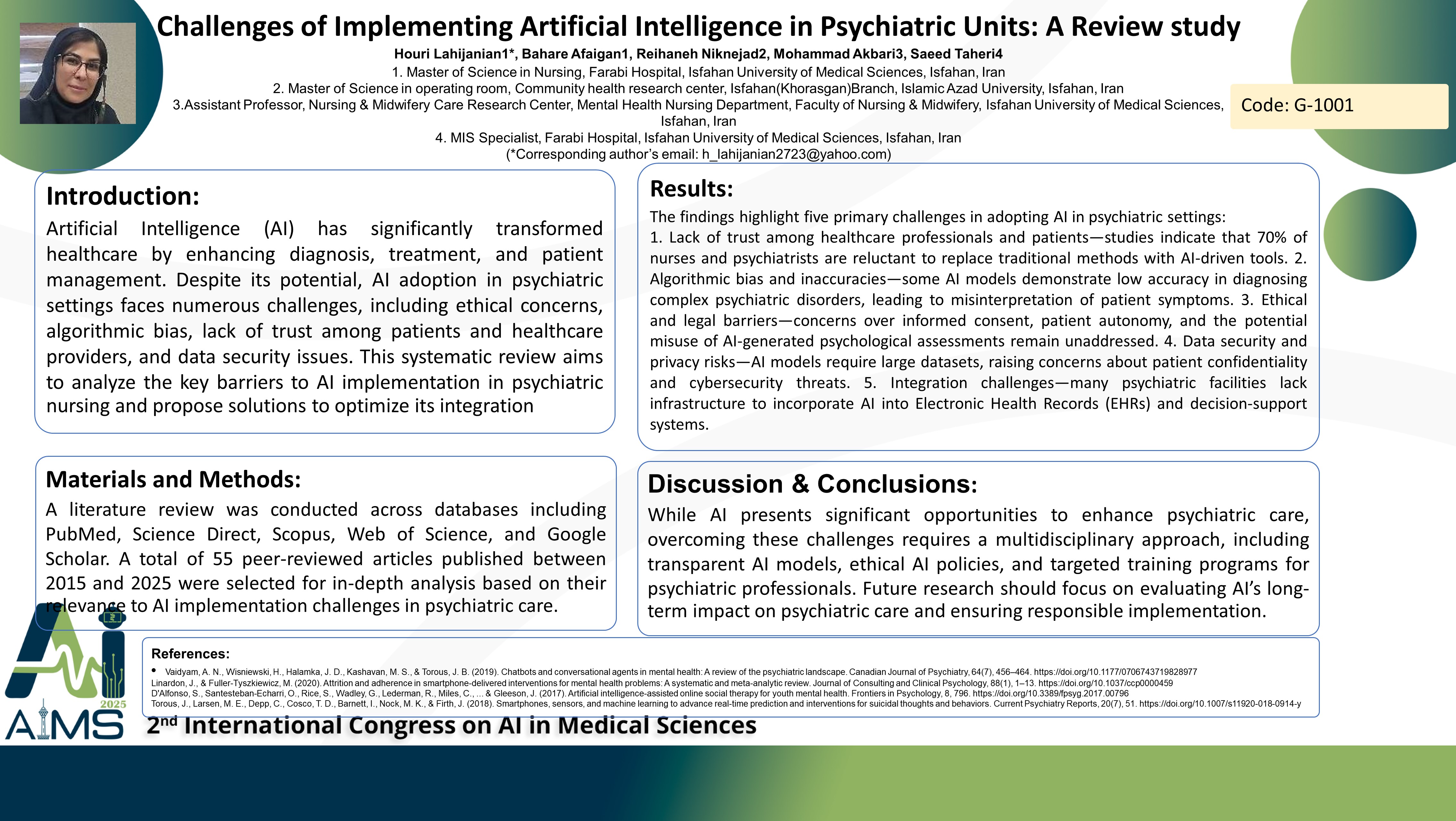چالشهای پیادهسازی هوش مصنوعی در بخشهای روانپزشکی: یک مطالعه مروری
کد: G-1377
نویسندگان: Hoori Lahijanian * ℗, Bahareh Afarigan, Reyhaneh Nick Nejad, Mohammad Akbari, Saeid Taheri
زمان بندی: زمان بندی نشده!
برچسب: دستیار مجازی هوشمند
دانلود: دانلود پوستر
خلاصه مقاله:
خلاصه مقاله
Background and aims: Artificial Intelligence (AI) has significantly transformed healthcare by enhancing diagnosis, treatment, and patient management. Despite its potential, AI adoption in psychiatric settings faces numerous challenges, including ethical concerns, algorithmic bias, lack of trust among patients and healthcare providers, and data security issues. This systematic review aims to analyze the key barriers to AI implementation in psychiatric nursing and propose solutions to optimize its integration Method: A literature review was conducted across databases including PubMed, Science Direct, Scopus, Web of Science, and Google Scholar. A total of 55 peer-reviewed articles published between 2015 and 2025 were selected for in-depth analysis based on their relevance to AI implementation challenges in psychiatric care. Results: The findings highlight five primary challenges in adopting AI in psychiatric settings: 1. Lack of trust among healthcare professionals and patients—studies indicate that 70% of nurses and psychiatrists are reluctant to replace traditional methods with AI-driven tools. 2. Algorithmic bias and inaccuracies—some AI models demonstrate low accuracy in diagnosing complex psychiatric disorders, leading to misinterpretation of patient symptoms. 3. Ethical and legal barriers—concerns over informed consent, patient autonomy, and the potential misuse of AI-generated psychological assessments remain unaddressed. 4. Data security and privacy risks—AI models require large datasets, raising concerns about patient confidentiality and cybersecurity threats. 5. Integration challenges—many psychiatric facilities lack infrastructure to incorporate AI into Electronic Health Records (EHRs) and decision-support systems. Conclusion: While AI presents significant opportunities to enhance psychiatric care, overcoming these challenges requires a multidisciplinary approach, including transparent AI models, ethical AI policies, and targeted training programs for psychiatric professionals. Future research should focus on evaluating AI’s long-term impact on psychiatric care and ensuring responsible implementation.
کلمات کلیدی
Artificial Intelligence, Psychiatric Nursing, AI
